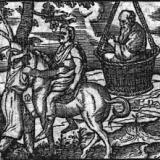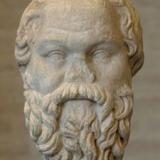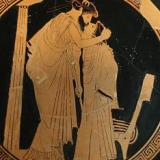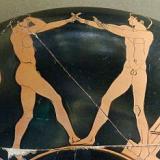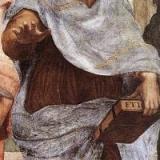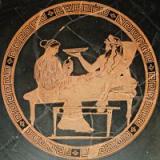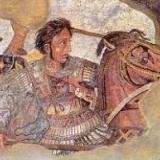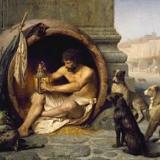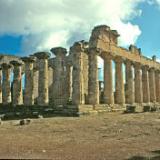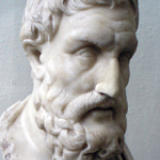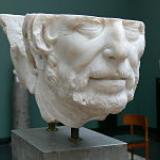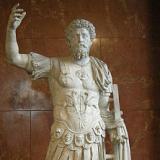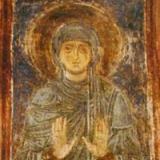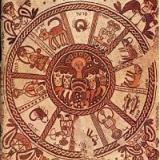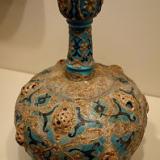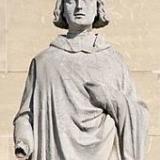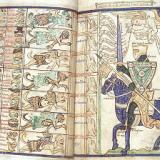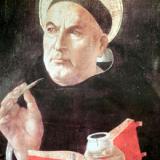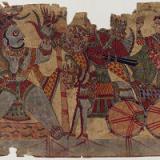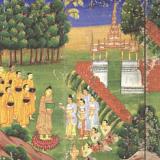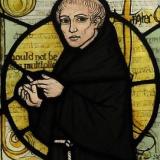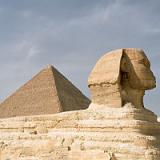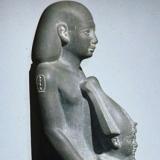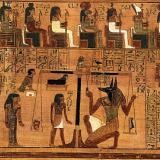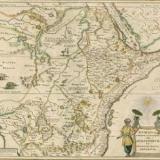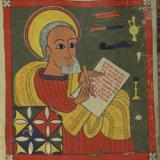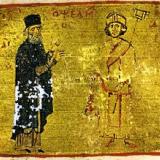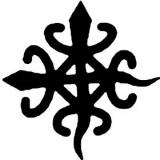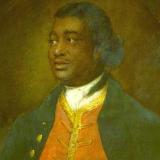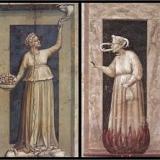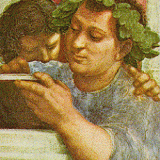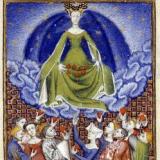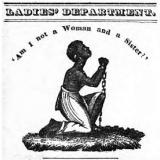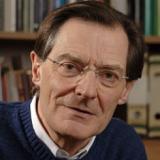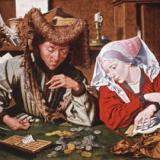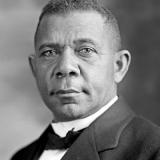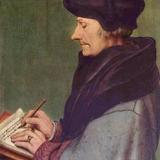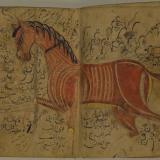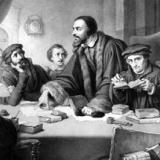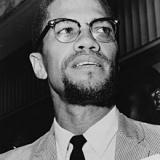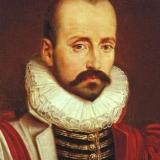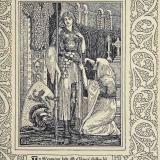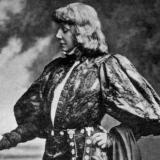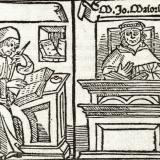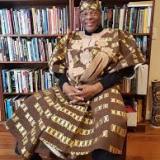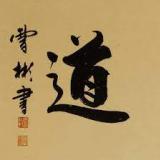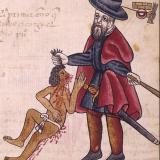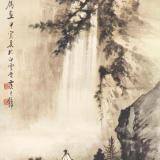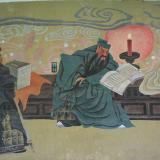Ethics
Posted on
Peter discusses the Pre-Socratic philosopher Heraclitus, and tries to discover whether it's possible to step into the same river twice.
Posted on
In this episode Peter discusses the Atomists Democritus and Leucippus, and how they were responding to the ideas of Parmenides and his followers.
Posted on
In the first of several episodes on Socrates, Peter discusses his portrayals in "The Clouds" of Aristophanes and in the works of the historian Xenophon.
Posted on
In this episode, the second of three devoted to Socrates, Peter Adamson of King’s College London discusses the way he is portrayed in the early dialogues of Plato, especially the “Apology.” Topics include Socratic ignorance and Socrates' claim that no one does wrong willingly.
Posted on
Peter discusses virtue, self knowledge and some bad arguments in two lesser-known dialogues of Plato: the Charmides and the Euthydemus.
Posted on
Peter discusses one of Plato’s great dialogues on ethics, the Gorgias, in which Socrates compares rhetoric to pastry-making and squares off against the immoralist Callicles.
Posted on
Peter looks at one of Aristotle’s most popular works, the Nicomachean Ethics, and its ideas about happiness and virtue.
Posted on
Peter continues to look at the Nicomachean Ethics, discussing Aristotle’s views about the role of pleasure and friendship in the good life.
Posted on
Peter chats with Dominic Scott of the University of Virginia, and talks about Aristotle's audience, method and conclusions in the Nicomachean Ethics.
Posted on
Peter introduces the Hellenistic philosophical schools – the Cynics, Epicureans, Stoics, and Skeptics – and asks how they responded to earlier thinkers.
Posted on
In this episode we unleash the most outrageous ancient philosophers, Diogenes and the Cynics, and their quest to “deface the currency” by exposing the hypocrisy of Greek society.
Posted on
Peter considers Aristippus and the Cyrenaics, a group of hedonistic philosophers who were in touch with their feelings… but nothing else.
Posted on
Epicurus is infamous for thinking that pleasure is the good. But surprisingly, he says the highest pleasure is mere absence of pain. In this episode, Peter enjoys the challenge of trying to understand why.
Posted on
Peter considers two of the Stoics’ most challenging ideas, a determinism that leaves room for moral responsibility, and the ideal of an ethically perfect sage.
Posted on
Peter starts to explore the Roman Stoics, beginning with Seneca and the Stoic attitude towards the emotions.
Posted on
The greatest of the Roman Stoics is Epictetus, arguably the first thinker to discuss the nature of human will, and author of some of the most powerful and demanding ethical writings in history.
Posted on
The life and thought of Marcus Aurelius, Roman Emperor and author of the classic text of Stoic self-examination, the Meditations.
Posted on
Peter chats about Seneca, Marcus Aurelius, and Epictetus with John Sellars, an expert on Roman Stoicism and the reception of Stoicism in the early modern era.
Posted on
Plotinus struggles to explain the presence of suffering, evil and ugliness in a world caused by purely good principles – and tells us what role we should play in that world.
Posted on
Christian ascetics like Antony, Macrina and Evagrius create a new ethical ideal by pushing the human capacity for self-control to its limits.
Posted on
Peter speaks with Sarah Byers about the Stoic influence on Augustine's ethics and theory of action.
Posted on
Drawing on Galen and Aristotle, philosophers from al-Kindi to Miskawayh compose ethical works designed us to achieve health in soul, as well as body.
Posted on
Baḥya Ibn Paquda and Maimonides explore the ethical dimension of the Jewish scriptures and legal tradition.
Posted on
The hugely influential Fakhr al-Dīn al-Rāzī weaves Avicenna and Islamic theology into complex dialectical treatments of time, God, the soul, and ethics.
Posted on
Peter Abelard sets out an innovative ethical theory that identifies intentions as the core of moral life.
Posted on
The scholastics explore Aristotle’s ethical teaching and the concept of moral conscience.
Posted on
Natural and supernatural virtue and happiness in Thomas Aquinas and his teacher, Albert the Great.
Posted on
The great Hindu epic Mahābhārata explores moral dilemmas and the permissibilty of lying, against the background of the ethical concept of dharma.
Posted on
Vegetarianism and non-violence (ahimsa) in ancient Jainism, Buddhism, and Hinduism.
Posted on
Henry of Ghent, now little known but a leading scholastic in the late 13th century, makes influential proposals on all the debates of his time.
Posted on
Scotus argues that morality is a matter of freely choosing to follow God’s freely issued commands.
Posted on
William of Ockham on freedom of action and freedom of thought.
Posted on
The scholastic and mystic Meister Eckhart sets out his daring speculations about God and humankind in both Latin and German.
Posted on
Martin Pickavé returns to the podcast to talk about theories of the emotions in Aquinas, Scotus and Wodeham.
Posted on
Three guests to celebrate 300 episodes! Rachel Barney, Christof Rapp, and Mark Kalderon join Peter to discuss the importance of ancient philosophy for today's philosophers.
Posted on
Ancient Egyptian figures and writings including the Pyramid Texts, Imhotep, and the "first monotheist" Akhenaten reflect on the nature of things and questions of morality.
Posted on
Ethical reflection in ancient Egyptian grave inscriptions and in works of moral advice, such as the Maxims of Ptahhotep and the Instructions named for Amenemope, Ani, and Merikare.
Posted on
Demands for ma’at (justice or truth) and a confrontation with the soul, in the Tale of the Eloquent Peasant and Dispute Between a Man and his Ba.
Posted on
The 17th century Ethiopian rationalist Zera Yacob, hailed as the first modern Africana philosopher.
Posted on
Walda Heywat’s reaction to the thought of his teacher Zera Yacob, and the dispute over the authenticity of these two Ethiopian philosophers.
Posted on
Michael Psellos and his attitude towards pagan philosophy and the political life.
Posted on
Katerina Ierodiakonou discusses Byzantine commentators on Aristotle, including Michael of Ephesus.
Posted on
Emphasis on the value of community as a major theme in African philosophy.
Posted on
The series on Byzantium concludes as guest Michele Trizio discusses the mutual influence of Byzantium and Latin Christendom.
Posted on
Ignatius Sancho and Benjamin Banneker make their mark on the history of Africana thought through letters that reflect on the power of sentiment.
Posted on
Humanists from Bruni and Valla to Pontano and Castiglione ask whether ancient ethical teachings can still help us learn how to live.
Posted on
The rediscovery of Epicurus, Lucretius, and Sextus Empiricus spreads challenging ideas about chance, atomism, and skepticism.
Posted on
An interview with Sabrina Ebbersmeyer about the relation of emotion to reason and the body, and panpsychism, in the Renaissance.
Posted on
Christine de Pizan's political philosophy, epistemology, and the refutation of misogyny in her "City of Ladies".
Posted on
Maria W. Stewart’s public addresses bring the concerns of African American women into the struggle against racial prejudice.
Posted on
Leading Machiavelli scholar Quentin Skinner joins Peter to discuss morality, history, and religion in the Prince and the Discourses.
Posted on
Leon Battista Alberti, Benedetto Cotrugli, and Poggio Bracciolini grapple with the moral and conceptual problems raised by the prospect of people getting filthy rich.
Posted on
An interview with David Lines on the Renaissance reception of Aristotle's Nicomachean Ethics.
Posted on
Was Booker T. Washington’s “accommodationist” approach to race relations a failure to stand up to injustice or a cunning strategy for incremental change?
Posted on
Rudolph Agricola, Juan Luis Vives and other humanist scholars spread the study of classical antiquity across Europe and mock the technicalities of scholastic philosophy.
Posted on
The “learned piety” of Desiderius Erasmus, the greatest figure of northern humanism.
Posted on
Trends in Aristotelian philosophy in northern and eastern Europe in the fifteenth century, featuring discussion of the “Wegestreit” and the nominalist theology of Gabriel Biel.
Posted on
Luther’s close ally Melanchthon uses his knowledge of ancient philosophy and rhetoric in the service of the Reformation.
Posted on
In this third of four bonus episodes on animals and Islamic philosophy, Peter looks at texts from the Islamic world arguing for benevolence towards animals.
These episodes draw on work done with the support of the project “Animals in the Philosophy of the Islamic World”, which has received funding from the European Research Council (ERC), under the European Union’s Horizon 2020 research and innovation programme (grant agreement No. 786762).
Posted on
In a surprise twist, some Protestant thinkers embrace the methods of scholasticism, and even find something to admire in the work of Catholic authors like Aquinas.
Posted on
John Sellars returns to the podcast to discuss Lipsius' work on Seneca and the early modern Neo-Stoic movement.
Posted on
An interview about the role of the emotions, including anger and feelings of dignity, in the non-violent protest campaign of King.
Posted on
The life and career of Malcolm X up to 1963, with a focus on his separatist black nationalism and his critique of non-violent protest.
Posted on
The Pan-Africanist philosopher Maulana Karenga defends the importance of cultural revolution and invents the holiday Kwanzaa.
Posted on
Joseph Scaliger, Isaac Casaubon, and Guillaume du Vair grapple with history and the events of their own day.
Posted on
In his Essays Montaigne uses wit, insight, and humanist training to tackle his favorite subject: Montaigne.
Posted on
We begin to look at Elizabethan literature, as Sidney argues that poetry is superior to philosophy, and philosophy is put to use in Spenser’s Fairie Queene.
Posted on
We're joined by Patrick Gray to discuss Shakespeare's knowledge of philosophy, his ethics, and his influence on such thinkers as Hegel.
Posted on
How the Renaissance turn towards individual identity is reflected in Shakespeare's most famous play.
Posted on
The evolution of Aristotelian philosophy from John Mair in the late 15th century to John Case in the late 16th century.
Posted on
What inspired Asante's philosophy of Afrocentricity, and its relationship to religion, nationalism, and feminism.
Posted on
Introducing Chinese philosophy through the concept of "dao," a fundamental word in classical Chinese philosophy, with a range of meanings across its different traditions.
Posted on
Bartholomé De las Casas argues against opponents, like Sepúlveda, who believed that Europeans had a legal and moral right to rule over and exploit the indigenous peoples of the Americas.
Posted on
Early Chinese philosophers were deeply aware of a world that is constantly changing. We consider how they responded to uncertainty about change.
Posted on
The historical context of classical Chinese philosophy, and how ancient Chinese historical works themselves became works of philosophy.



